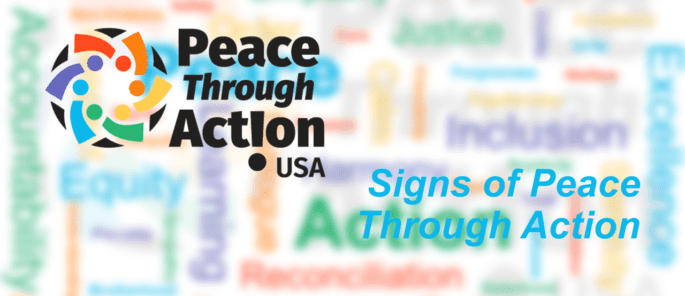
Bob Reeg, on the subject of undoing racism
My social media continues to fill with news stories, quotes from history, and outrage posts about the most recent series of high-profile state and citizen violence against people of African American race—say their names: Breonna Taylor, George Floyd, Ahmaud Armery, Christopher Cooper—and the demonstrations that have ensued in response to their killings.
One such post stood out for me. Someone shared a news story about race-based trauma. The poster introduced the story with their own comment, “I can’t imagine life on guard.”
I can imagine a life on guard. I suspect many other white Americans can too—because many of us have lived or do live such lives.
If you did or do experience bullying by peers at school, you can imagine life on guard. I can speak directly to this type of experience. I was bullied chronically in elementary and high school. It became a chore to attend school, wondering each morning if this was going to be a good day when I would be left alone, a mild day of light bullying, or a “full-on” rough day.
If you did or do experience abuse by a caregiver, partner, or sibling in your home, you can imagine life on guard. What’s my abuser’s mood today? What might/did I do to today to set them off? Can I avoid or escape the place where my abuser harms me?
If you did or do experience harassment in the workplace or on the street, you can imagine life on guard. Am I going to be catcalled or lured at by a coworker or boss, or called out by a stranger for my clothing choice, gait, or companion?
If you or a family member lived or live in a country with a totalitarian form of government, you can imagine life on guard. Is the government monitoring my activities? Will I be imprisoned for expressing my beliefs? Will I be forced to flee my homeland merely for belonging to a group not favored by the group or person holding state power?
If none of those examples of life on guard speak to you, how about our universal present condition of living during a pandemic. Is it safe to leave home? Will I be shamed for wearing a face covering, or for not wearing one? Will there be an available respiratory therapist and ventilator at the hospital to save me if I can’t breathe?
Living life on guard is exhausting, nerve-wracking, infuriating, and even a matter of life or death.
As a white person, I cannot truly know what it is like to live on guard due to race. But I can imagine it. I have my own life-on-guard experiences. Therefore, I should be able to relate to others having similar experiences, just as I hope others can relate to mine. And I should take others at their word when they testify to the traumas from their life-on-guard experiences, just as I hope others will believe me when I tell mine. And I should want their adverse experiences alleviated, just as I hope others will wish the same relief for me.
We all know though that “should” does not necessarily lead to “do.” When intentions do not convert to actions, it’s often due to either a lack of motivation or a lack of resources.
Americans of color are crying out through their storytelling, speeches, and street marches that they are sick and tired of living lives on guard. They are pleading with us white folx to get our collective knees off their necks. To motivate ourselves to love them enough to want them to breathe freely. And to go about the work white people must do to lift our knees.
If enough of us white people draw upon our own life-on-guard experiences so that we can relate to the traumas that Americans of color experience (this step is called “empathy”), enough of us will then share their suffering called racism. And if enough of us empathizing white people then go further and take concrete actions to relieve their suffering (this step is called “compassion”), we actually will overcome racism.
I am hopeful we white people will do these things! It’s definitely within our power. Using the instruments of empathy and compassion, we shall move ourselves from “should” to “do.” I can imagine it so! Will you imagine it too?
Bob Reeg is founder and chief executive officer of Peace Through Action USA, a national organization that activates and equips Americans to implement practical peaceful solutions to aggression and violence in their communities and our country.
Visit Peace Through Action’s information page on racism to learn what you can do to reduce and prevent it.
Sign up for our enews.
Give a gift of money to support our development and sharing of learning and action resources.

Cary Page
Date: 31 May, 2020
Respond